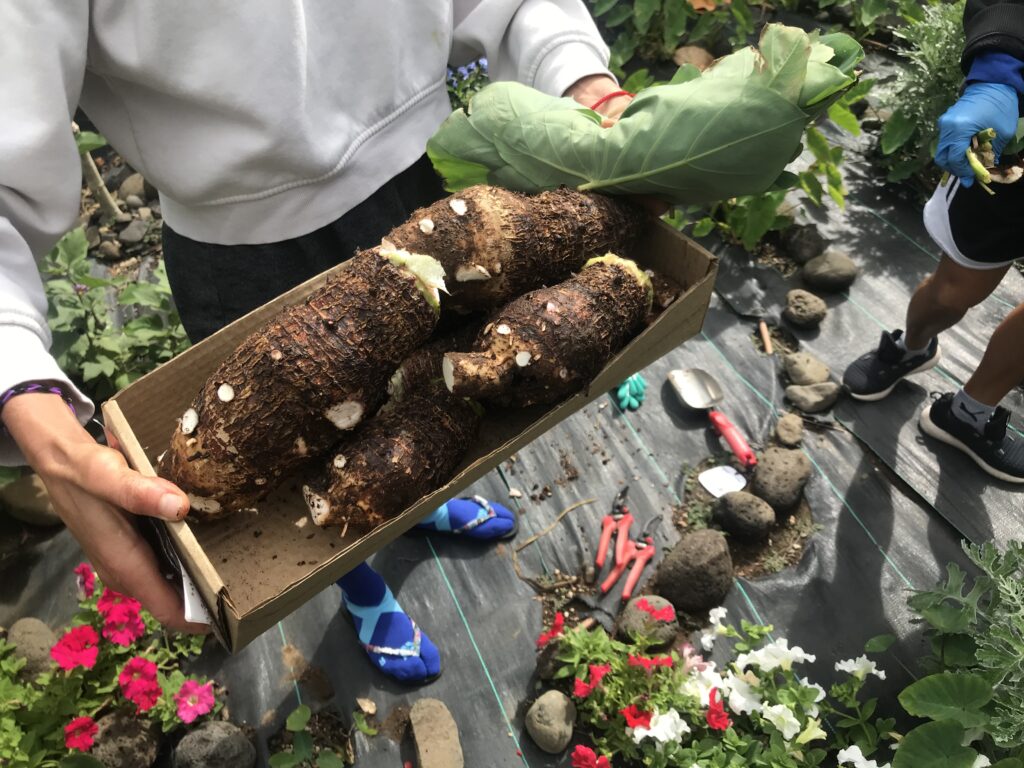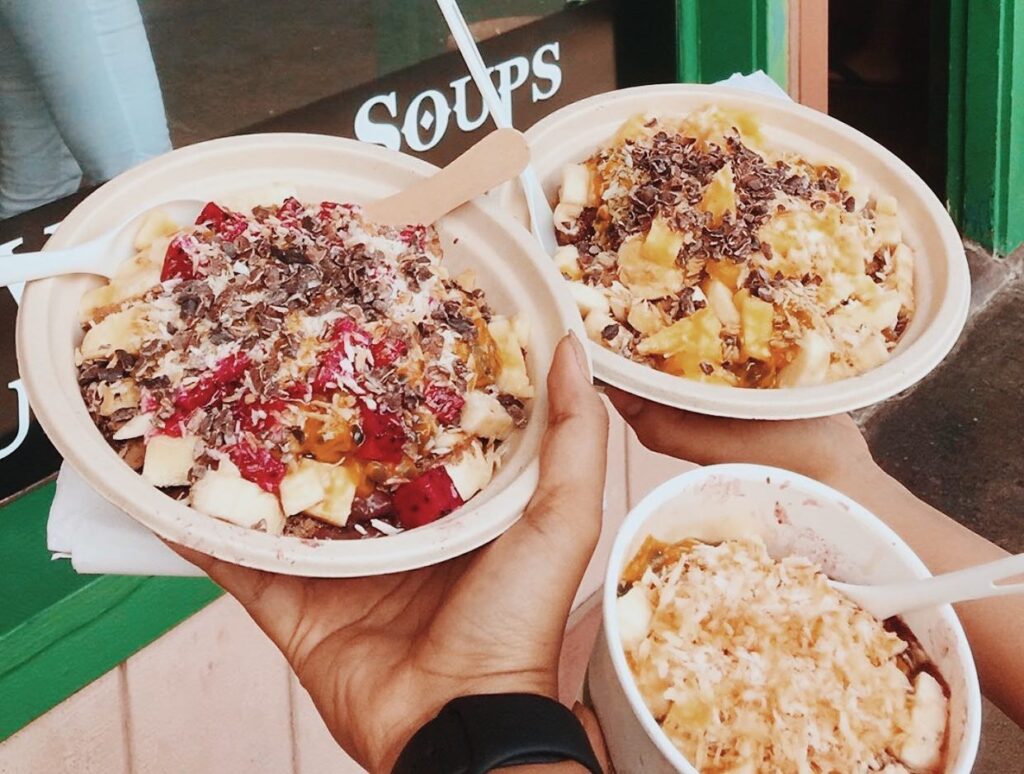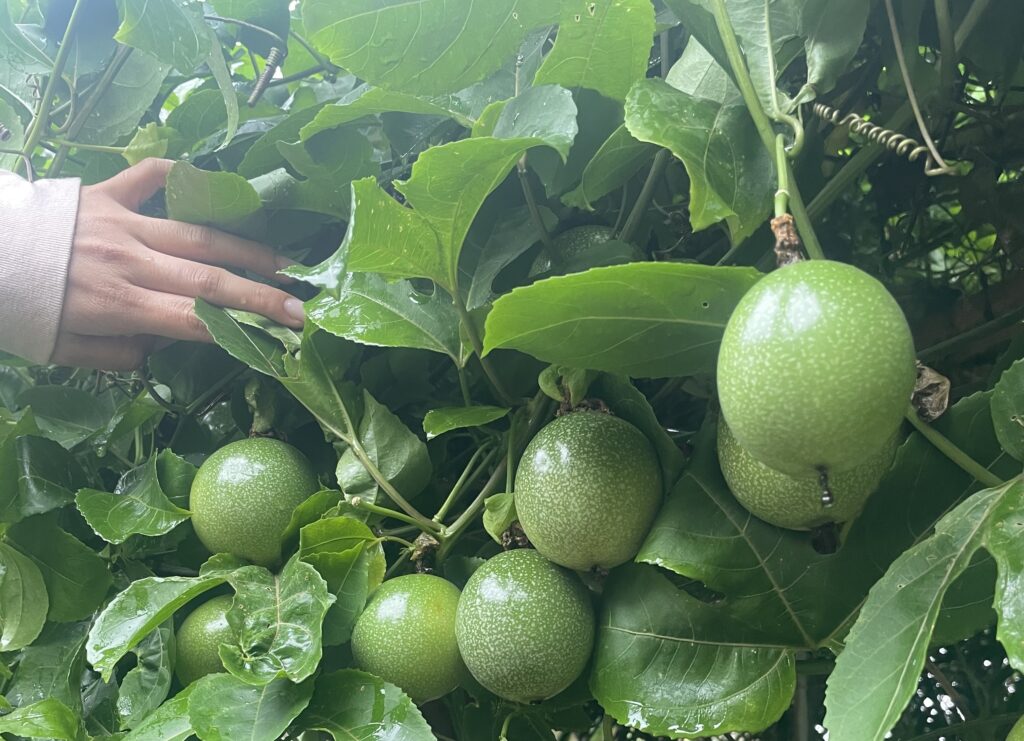Vegan-Inclusive Eating Disorder Treatment
Vegan-Specific Eating Disorder Treatment
Eating disorder treatment for vegans is a nuanced, highly personalized approach to recovery. Vegan clients with eating disorders have long struggled to find adequate treatment and support. At ‘Ai Pono, we recognized this need, and we have responded by expanding our program to provide a vegan-inclusive menu and additional programming options.
Research and experience have shown that some eating disorder clients may “find their way” to veganism as a means to further restrict or limit their food choices. However, this is not the case for all clients. Only by receiving effective and inclusive treatment can one fully understand the true meaning and intention behind their food choices.
Every client is different, and we aim to support you in differentiating the eating disorder and regaining full autonomy over your food and body.
Our skilled dietary team has created a menu to accommodate vegan patients and enhanced our nutritional education curriculum to include information on achieving balanced nutrition as someone who may choose to adopt a vegan lifestyle.
Eating disorder recovery is the journey home to your true self.
Learn more about our program from our Director of Eating Disorder Programming, Dr. Anita Johnston, PhD, CEDS.
Assessing and Meeting the Nutritional Needs of Vegan Clients
Healing from an eating disorder while on a vegan diet can be particularly difficult in the initial stages of recovery. Vegan-inclusive eating disorder recovery must embrace the individual’s philosophical and spiritual principles while recognizing and addressing unhealthy and unsustainable behavior patterns. Vegan diets are inherently more restrictive, and when intertwined with an eating disorder, the amount of food that one feels comfortable eating or has access to may be minimal. This makes it even harder to meet one’s nutritional requirements and caloric needs. Hence, many people who consume certain vegetarian or vegan diets will need specific nutritional guidance and additional supplementation of essential nutrients. Eating disorder recovery for vegans requires nutritional support that addresses potential deficiencies that might stem from either vegan dietary parameters or the impulse to restrict. Nutrients that may be of particular concern for vegans are:- Protein: Some good plant sources of protein are tofu and other soy products, seeds, legumes (peas, beans, and lentils), nuts and nut butters, meat alternatives, and grains (like quinoa and wild rice). Lacto-ovo-vegetarians, lacto-vegetarians, and ovo-vegetarians can usually get enough protein from consuming eggs and/or dairy products.
- Iron: : Iron from plants (called non-heme iron) is not absorbed as easily as that found in animal products (called heme iron), which can be a concern for vegetarians, particularly for menstruating women. Iron is also better absorbed when taken with foods rich in vitamin C (like broccoli, citrus fruits, and tomatoes). Some good plant-based sources of iron are leafy green vegetables (like spinach), soy products (like soy milk, tofu, and tempeh), seeds, nuts and nut butters, fortified breads and cereals, whole grains, legumes (peas, beans, and lentils), and dried fruits (like raisins, dried apricots, and dried figs).
- Omega-3 fatty acids: Plant-based sources of omega-3 fatty acids include flaxseed and flaxseed oil, soy products (like tofu, soy milk, and soybean oil), walnuts, chia seeds, and canola oil. Vegetarians often have lower levels of omega-3 fatty acids DHA and EPA because the main source of these is fish. Lacto-ovo-vegetarians and ovo-vegetarians may have better levels of these if they eat eggs that are rich in omega-3s.
- Zinc: Just like iron, plant-based sources of zinc are not absorbed as easily as animal sources. Some good sources of zinc for vegetarians are soy products, whole grains, seeds, nuts and nut butters, legumes (peas, beans, and lentils), and fortified cereals and bread. Lacto-ovo-vegetarians and lacto-vegetarians can obtain enough zinc from dairy products like cheese, milk, and yogurt.
- Vitamin D: Vitamin D is crucial for bone health. The best source of this vitamin is sun exposure, particularly during summer and spring, since the human body naturally creates vitamin D when we expose our skin to sunlight. A limited number of foods contain vitamin D naturally (e.g., eggs), but some foods are fortified with it, such as cereals and breads, dairy products (like milk and yogurt), plant-based milks (like almond milk and soy milk), and orange juice.
- Calcium: Together with Vitamin D, calcium is essential for bone health; however, milk and dairy products are its leading sources. For vegans, plant-based sources of calcium are leafy green vegetables (like kale, cabbage, bok choy, and collard greens), calcium-enriched tofu, broccoli, almonds and almond butter, and calcium-fortified products like cereals, breads, and orange juice.
- Vitamin B12: Lastly, vitamin B12 is mainly found in animal foods (including eggs and dairy products). However, there are sources of vitamin B12 for vegans, such as fortified cereals and breads, as well as fortified soy products like tofu and soy milk. Vitamin B12 supplements are also available and often recommended to vegans, but it’s best to consult your healthcare provider and/or dietitian to confirm.
Medical Monitoring of Vegan Clients
When treating vegan clients, our medical team and dietary team will work closely together to ensure that all clients’ nutritional needs are being met. All ‘Ai Pono clients receive:
- A comprehensive medical evaluation upon admission
- 24/7 nursing support
- Lab monitoring to ensure that signs of malnutrition are identified and addressed
- Additional nutritional supplementation as needed
- 1x weekly individual session with a Registered Dietitian and 2x weekly Nutrition Groups
- Ability to participate in meal and snack outings in the local community
- Customized meal planning based on your own nutritional needs
- Therapeutic support at and around the table
- Process groups that allow space for clients to explore the complex relationships between food and feelings
Alternative & Effective Approaches for Treating Vegan Clients
Vegan-inclusive eating disorder treatment is a journey where we honor and nurture our clients’ ideological foundation while examining and addressing their deep-seated emotional and behavioral challenges.
We offer a unique variety of nutritional and therapeutic support for vegan clients to continue to explore and expand their relationship with food and eating in a healthy and balanced way.
NUTRITIONAL THERAPY & EDUCATION
At our eating disorder treatment center, we provide individual and group nutritional support. Every ‘Ai Pono client meets with a Registered Dietitian on an individual basis once per week. During this 1:1 session, clients receive valuable information, support with meal planning, and develop personalized nutritional goals.
Additionally, we consider all meals and snacks to be therapeutic groups. We offer Nutrition Education groups that provide detailed insight and information into the nutritional impacts of eating disorders and how to properly and sustainably nourish oneself according to dietary standards and individual needs.


SUPPORTED MEAL AND SNACK OUTINGS
One of the many functions of food is its ability to provide opportunities for social connection. Individuals who struggle with eating disorders often miss out on family dinners, holidays, celebrations with friends, or casual coffee dates because of their food-related anxiety.
On meal and snack outings, clients engage in exposure therapy alongside staff members to ensure that they feel safe and supported outside of the treatment environment. Maui is home to a wide variety of local and international cuisines for our vegan clients to experience.
HORTICULTURAL THERAPY
Our location on Maui lends itself to hosting many outdoor sessions and groups, including Horticultural Therapy. In Horticultural Therapy groups, clients take part in the growing and harvesting process. They learn about various indigenous plants, flowers, fruits, and vegetables – many of which make their way into home-cooked meals at the center. Clients particularly love the tradition of picking fresh herbs to garnish meals.
Horticultural Therapy groups give clients the opportunity to connect (or reconnect) with nature and the source of their food.

Holistic Eating Disorder Treatment for Vegan Clients
‘Ai Pono is a vegan-inclusive eating disorder treatment center that respects and fosters clients’ foundational principles. We respect their ethical and personal choices while providing the guidance and support to manage the emotional disorders that manifest as disordered eating patterns.
At ‘Ai Pono, we focus on rebuilding one’s relationship with food and eating from the ground up. Our primary goal is to empower our clients with the ability and confidence to make healthy and informed decisions in the best interest of their overall well-being.
Eating disorders have the capacity to rob an individual of their autonomy and distort one’s concept of health. By meeting and accepting vegan clients where they are, these clients are able to have access to care that they might not have had otherwise.
Contact a member of our Admissions Team today to learn more about how we support vegan clients.
